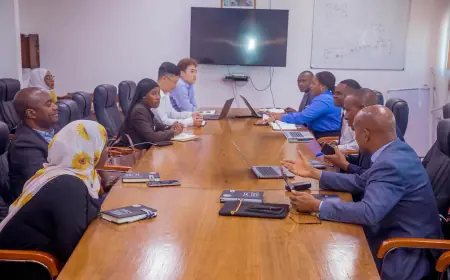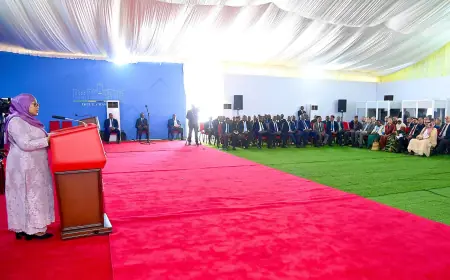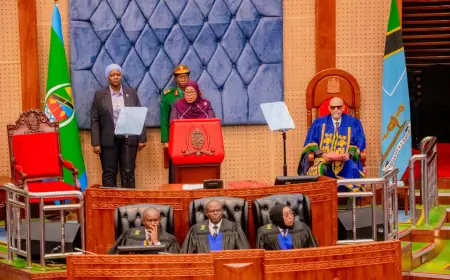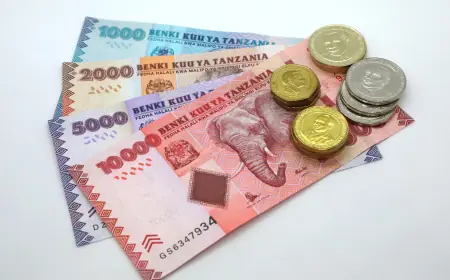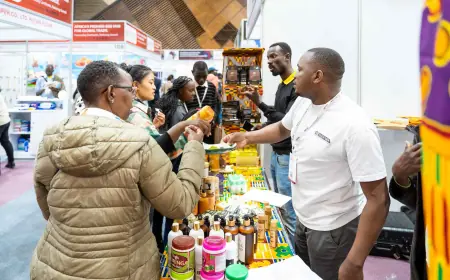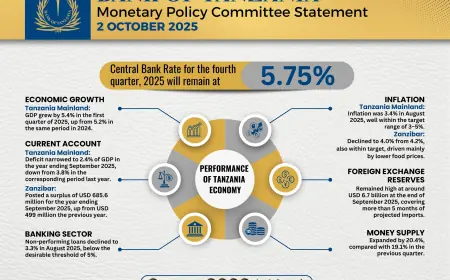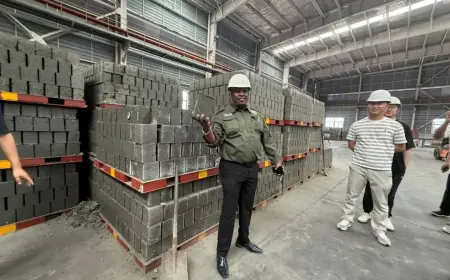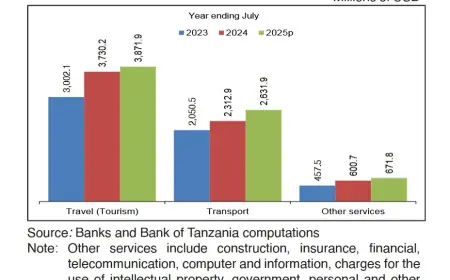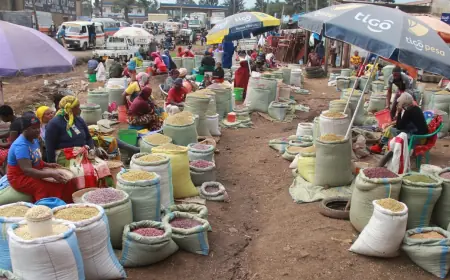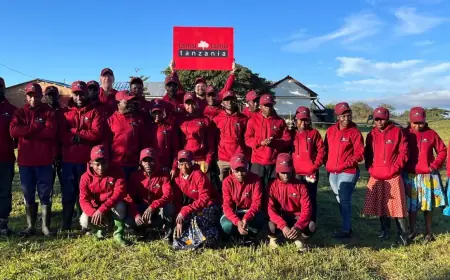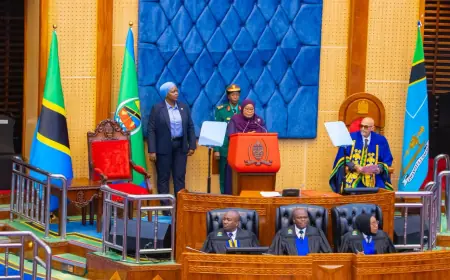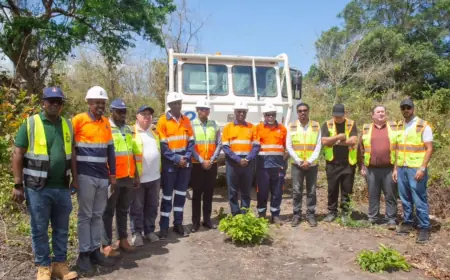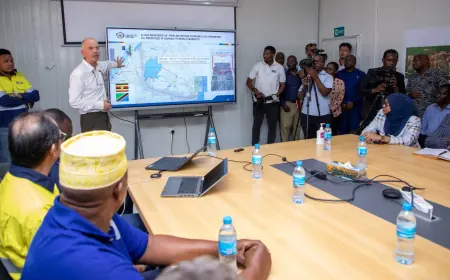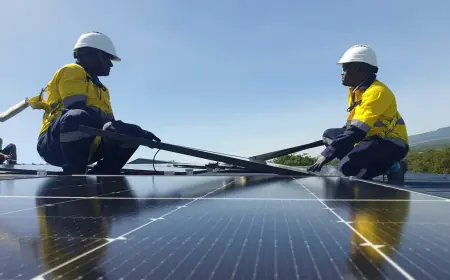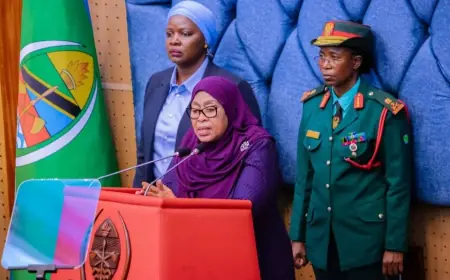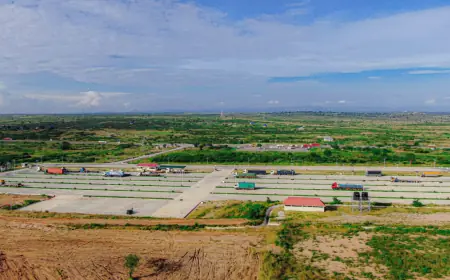Tanzania tightens digital economy oversight as state pursues new revenue frontiers
As more businesses migrate online and citizens embrace electronic transactions, the state has sharpened its regulatory gaze
Dar es Salaam. The digital marketplace has moved from being a novelty to an essential pillar of Tanzania’s commercial landscape, carrying with it both opportunity and risk.
As more businesses migrate online and citizens embrace electronic transactions, the state has sharpened its regulatory gaze.
The dual imperative is clear: to safeguard consumers from unsafe and counterfeit goods, and to ensure that income generated in cyberspace contributes fairly to the national coffers.
The Tanzania Bureau of Standards (TBS) has extended its inspection mandate to cover products traded through online platforms.
TBS director general Dr Ashura Katunzi said on September 18, 2025, that inspectors would begin subjecting online listings and shipments bound for Tanzanian consumers to the same product verification and sampling that apply in physical markets, ports and production sites.
“The same technical standards will apply to goods offered electronically, and enforcement action will follow where non-conformity is found,” she noted.
The move responds to the realities of e-commerce, where fresh channels exist for counterfeit and substandard goods to enter the domestic market.
For compliant producers and legitimate online traders, stricter oversight promises to bolster market trust and potentially ease access to regional and global buyers through internationally accredited certification.
For consumers, the inspections are meant to reduce health and safety risks posed by unverified cosmetics, foodstuffs and electrical appliances.
Bolstering institutional muscle
The online inspection drive forms part of wider institutional strengthening by the Government.
TBS now operates 12 laboratories, each with international proficiency accreditation, meaning Tanzanian-issued test results are recognised abroad.
Investments exceeding Sh12.9 billion have delivered specialised equipment, ranging from hydrostatic pressure testers for pipes to solar simulators for photovoltaic modules.
This capacity is intended to support swifter specimen analysis, enhance credibility of enforcement, and facilitate exporters seeking certification.
Yet the bureau concedes the digital sphere poses tougher challenges than physical inspection: the high volume of small consignments, sellers operating from outside national jurisdiction, and the resource-intensive nature of sampling and laboratory testing.
Its strategy combines prioritisation of high-risk categories, use of data analytics to target inspections, and collaboration with customs, port authorities and digital platforms to disrupt illicit flows.
Revenue imperatives take centre stage
The Tanzania Revenue Authority (TRA) has simultaneously moved to formalise the fast-expanding online economy.
All online traders, whether individuals, SMEs or platform operators, are now required to register for taxation if their turnover exceeds Sh4 million annually.
This includes sellers on Instagram and Facebook, operators on marketplaces like Jiji, and accommodation providers on Airbnb.
In early August, the TRA launched a nationwide listing of digital businesses.
Commissioner General Yusuph Mwenda reiterated that while platforms such as Airbnb, Meta and Netflix had opened up new income streams, many entrepreneurs continued to operate outside the formal tax system.
A one-month grace period was offered for voluntary registration, after which non-compliance became a punishable offence.
The measures are backed by enforcement campaigns that train officers to trace online income activities, cross-check undeclared imports against social media sales, and use whistleblower incentives to report tax evasion.
A cut in Value Added Tax from 18 to 16 percent for taxpayers using online platforms for payments has also been introduced to encourage voluntary compliance.
Global rules, local enforcement
Beyond domestic traders, Tanzania’s 2 percent Digital Service Tax (DST) casts its net over non-resident companies supplying electronic services to Tanzanian users.
Enacted in 2022, the DST applies regardless of revenue thresholds, targeting platforms offering online advertising, streaming, digital marketplaces, e-learning, web hosting and intermediation services such as Airbnb and Booking.com. Non-resident providers must register and remit both the DST and 18 percent VAT.
The approach seeks to create a level playing field between digital and brick-and-mortar businesses, while expanding the revenue base.
For government, the growing significance of the digital economy offers a crucial lever for resource mobilisation at a time of pressing development needs.
Balancing opportunity with enforcement
These regulatory shifts are not without challenges. Awareness among small-scale online traders, particularly youth and home-based operators, remains limited.
Complexity in the registration process may deter voluntary compliance. Enforcement capacity, meanwhile, will be tested by the dispersed and fast-moving nature of digital trade.
Still, the strategy signals a decisive intent. Through coordinated action between TBS, TRA and the Tanzania Communications Regulatory Authority, the state is attempting to bring the virtual marketplace into the fold of formal regulation and taxation.
It is a balancing act, protecting consumers, nurturing legitimate enterprise, and widening fiscal space, yet one that underscores the digital economy’s ascent as a critical frontier of governance in Tanzania.
What's Your Reaction?
 Like
0
Like
0
 Dislike
0
Dislike
0
 Love
0
Love
0
 Funny
0
Funny
0
 Angry
0
Angry
0
 Sad
0
Sad
0
 Wow
0
Wow
0



